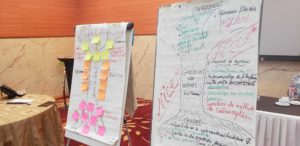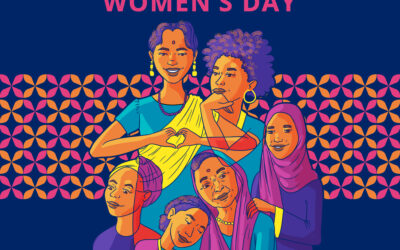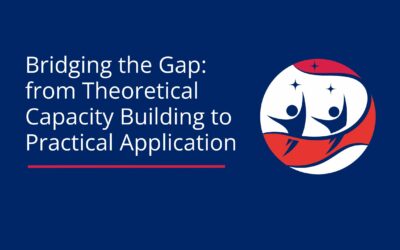
Romulus Gbota
Youth Advocate and former HCDExchange Youth Associate
GBOTA Atchokouè Romulus Amour has a Bachelor degree in English Linguistics from the University of Abomey Calavi. He is Member and leader at MAJ and RedCross, Benin. As an sexual and reproductive health rights activist, he promotes and champions for accessible family planning methods to all social strata in Benin. He raises awareness about the importance of birth spacing and the merits of family planning. He currently serves on the HCDExchange Advisory Committee.
What role does comprehensive sex education (CSE) play in improving the technical support for interventions aimed at improving adolescent and youth sexual and reproductive health (AYSRH)?
Reservations, myths and misinterpretations of sexual health is a challenge marring meaningful SRH interventions targeting adolescents in Benin. As a result, there is a noticeable rising number of early and unplanned pregnancies among school-going adolescents in Benin. Among the reasons that have exasperated poor sexual and reproductive health among youth and adolescents are; a high number of teen marriages,low education level among girls, gender inequality and low access to reproductive health services and gender inequalities. These challenges continue to prevent better outcomes for adolescents and youth in spite of the outreach and structures put in place for youth in Benin.
Through a subgrant from the HCDExchange, I found the opportunity to focus on strengthening technical support for AYSRH through comprehensive sexual education (CSE). CSE is one of the key interventions unanimously recognized as effective in adolescent sexual and reproductive health (ASRH). CSE is important to assess the effectiveness for ASRH and provide adequate solutions for its implementation. Through the method of human-centered design (HCD), my intervention aims at putting young people at the center of how well sex education is carried out through the evaluation of the existing solutions.
“Currently in Benin, when you start a conversion about sexual and reproductive health, some communities interpret it as a means of encouraging young people to indulge in sexual behaviour. “

Designing the implementation strategy using HCD principles
To strengthen CSE for better reproductive and sexual health outcomes for the youth, for the intervention in Benin and I set out to understand and describe the context of the preferred solution we were after through an observation strategy. We sat in biology courses identified . This was closely followed with a statement of the problem outlining difficulties with which the existing SRH interventions are approached by using questionnaires and interviews. Using these methods, allowed me to assess what young people in Benin really need in matters related to sexual and reproductive health education.
Through the primary research, I was able to create a report which was used as an advocacy tool for local political and administrative decision-makers asking them to hold periodic sessions of comprehensive sex education for adolescents and young people.
“Our aim as ASRH advocates is to equip the youth and adolescents with information and knowledge on how to navigate their individual sexual and reproductive health practices. “
I then moved towards defining the requirements of the desired solution to have a vision and goal that the designed product wants to achieve. The penultimate step was to design solutions together with stakeholders. That is the CSE implementation whereby the youth are at the center of finding solutions bent towards a comprehensive coverage of the needs of youth. Moreover, we can achieve CSE through the evaluation of the existing solution in order to propose a new methodological approach that is better and adapted to the design of the youth.





